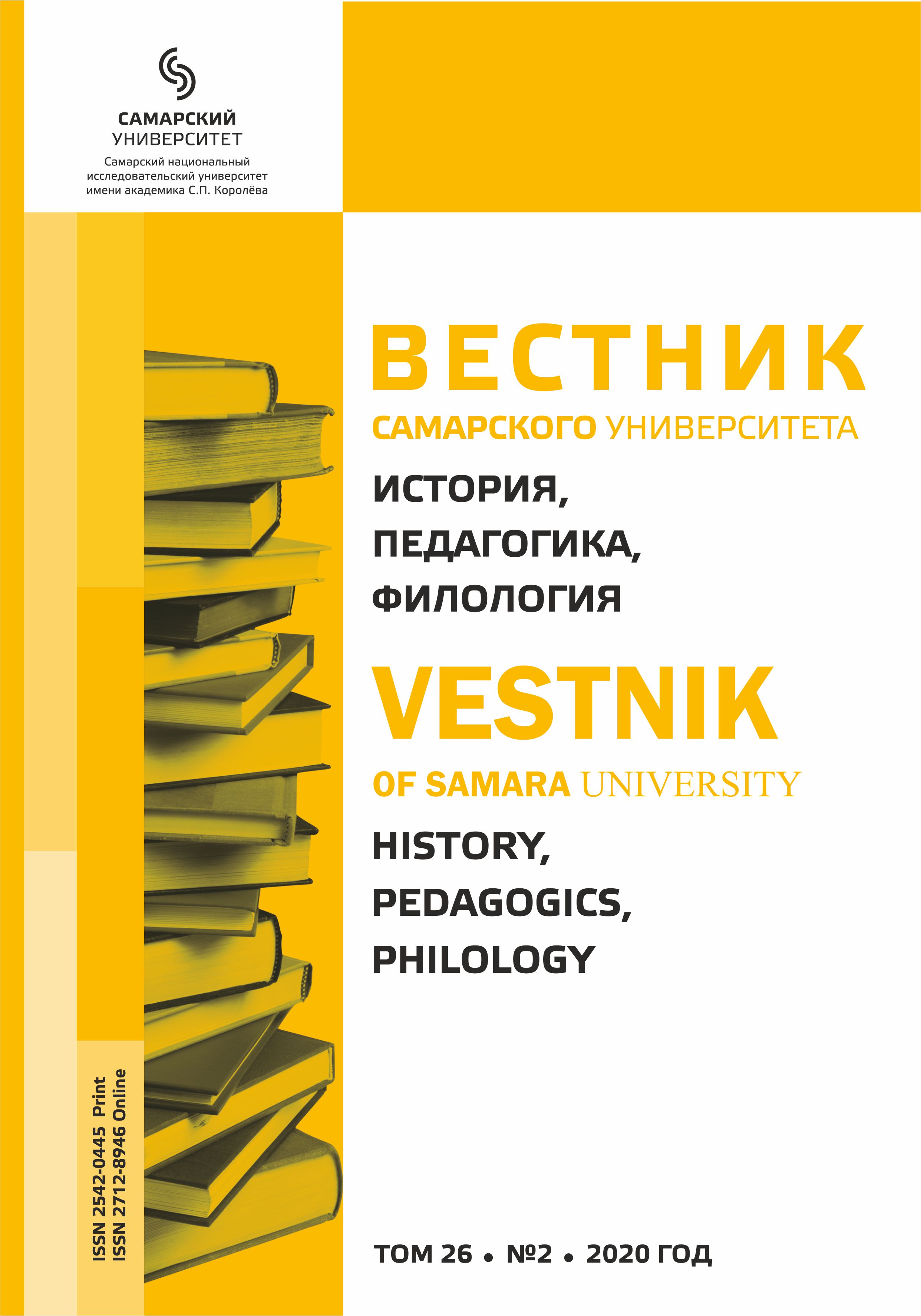Innovative orientation of the university lecturer activity
- Authors: Rudneva T.I.1
-
Affiliations:
- Samara National Research University
- Issue: Vol 26, No 2 (2020)
- Pages: 107-111
- Section: Articles
- URL: https://journals.ssau.ru/hpp/article/view/7882
- DOI: https://doi.org/10.18287/2542-0445-2020-26-2-107-111
- ID: 7882
Cite item
Full Text
Abstract
The article deals with significant changes in the educational process of a modern university, focuses on the change in motivation and value orientations of teachers of an innovative university in connection with globalization. Attention is drawn to the characteristics of modern education as a new social industry, due to the digital economy and the new generation of students. The article notes that digital learning (such a concept was introduced in the thesaurus of professional pedagogy) sets new lines in pedagogical activity, meeting resistance of some teachers who are not ready to use electronic tools and perform new professional functions, for example, monitoring learning outcomes. An increase in the teaching load causes teachers to distrust the reforms carried out in education, and sometimes professional deformation.
It is proved that the quality of education is determined not only by digital technologies, but also by the quality of educational conditions, professional and pedagogical competence of the teacher. At the same time, methodological support of experienced teachers is required to adapt to innovations and beginners in order to compensate for the lack of knowledge, skills and abilities when performing innovative tasks. The article provides a link to the experience of organizing advanced training for teachers at Samara University, the essence of which is that the results of research on relevant pedagogical problems by its teachers become the basis for determining the content of programs in the system of further education.
About the authors
T. I. Rudneva
Samara National Research University
Author for correspondence.
Email: morenov@ssau.ru
ORCID iD: 0000-0002-5777-4950
Doctor of Pedagogical Sciences, professor, head of the Department of Theory and Methods of Professional Education
References
- Siemens 2004 – Siemens G. (2004) Connectivism: A Learning Theory for the Digital Age. Elearnspace, 12.12.2004. Available at: http://er.dut.ac.za/bitstream/handle/123456789/69/Siemens_2005_Connectivism_A_learning_theory_for_the_digital_age.pdf.
- Berezhnaya 2014 – Berezhnaya I.F. (2014) Professional education in classical university of future teaching staff. Bulletin of Voronezh State Technical University, vol. 10, no. 3–2, pp. 97–100. Available at: https://cyberleninka.ru/article/n/professionalnaya-podgotovka-buduschih-pedagogov-v-klassicheskom-universitete. (In Russ.)
- Dmitriev 2016 – Dmitriev D.S. (2016) The readiness model of high school teachers e-learning tools use. Problems of modern pedagogical education, no. 53–9, pp. 227–234. Available at: https://elibrary.ru/item.asp?id=28284300. (In Russ.)
- Kaldybaev, Beyshenaliev 2015 – Kaldybaev S.K. and Beyshenaliev A.B. (2015) Quality of educational process in the structure of the quality of education. Advances in current natural sciences, no. 7, pp. 90–97. Available at: https://natural-sciences.ru/pdf/2015/7/35495.pdf. (In Russ.)
- Lubkov, Karakozov 2017 – Lubkov A.V. and Karakozov S.D. (2017) Digital Education for the Digital Economy. Informatics and Education, no. 8, pp. 3–6. Available at: https://elibrary.ru/item.asp?id=30504059. (In Russ.)
- Nazarova 2014 – Nazarova S.I. (2014) Diagnosis of vocational and educational activities in the general and vocational education. St. Petersburg State Polytechnical University Journal. Economics, no. 2 (196), pp. 114–120. Available at: https://cyberleninka.ru/article/n/metodologiya-diagnostiki-pedagogicheskoy-deyatelnosti-v-sistemah-obschego-i-professionalnogo-obrazovaniya.
- Psychology and pedagogy… 2018 – Verbitsky A.A. (Ed.) (2018) Psychology and pedagogy of contextual education: multi-authored monograph. Moscow: Saint Petersburg: Nestor-Istoriya, 416 p. Available at: https://nestorbook.ru/uDrive/file/2582/3d7be38cc1227fe683cb076d66654b4c.
- Rubtsova, Rudneva 2018 – Rubtsova T.P. and Rudneva T.I. (2018) Intramural training quality monitoring. Vestnik of Samara University. History, pedagogics, philology, vol. 24, no. 2, pp. 70–76. doi: 10.18287/2542-0445-2018-24-2-70-76.
- Rudneva, Strekalova 2018 – Rudneva T.I. and Strekalova N.B. (2018) Educational risks in innovative conditions of pedagogical activity: monograph. Syzran: Vash Vzglyad, 194 p. Available at: http://repo.ssau.ru/bitstream/Monografii/Obrazovatelnye-riski-v-innovacionnyh-usloviyah-pedagogicheskoi-deyatelnosti-Elektronnyi-resurs-monografiya-73224/1. (In Russ.)
- Sharipov 2017 – Sharipov F.V. (2017) Innovative activity in education. International Journal of Experimental Education, no. 1, pp. 103–106. Available at: https://expeducation.ru/ru/article/view?id=11071. (In Russ.)
Supplementary files













